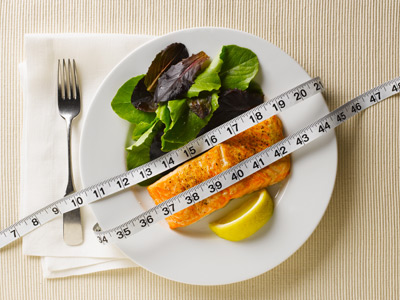May205 Reasons Why Most Diets Fail

Did you know that the average person gains about 11 pounds for every diet they go on. And when they actually lose weight and have success it is at the expense of losing muscle. Diet’s don’t work long term.
Below are 5 reasons why most usually fail.
- You are focusing too much on calories
Not all calories are created equally!
Some calories will make you fat, some will make you thin. Foods that spike insulin (sugar, flour and even excess grains, fruit and beans) trigger a change in your metabolism. So what does insulin do? It takes all the fuel in your blood from the food you just ate right to your fat cells (visceral or belly fat).
Then, your body thinks you are hungry even though you just at a muffin or drank a Pepsi. And remember, two things happen when your body thinks you are starving – you slow down metabolism and you increase your hunger.
Have you ever eaten a big meal, then, an hour later, felt hungry again and needed to get more food or eat something sweet? That’s why.
ACTION TO TAKE:
- Focus on very low-glycemic foods as the staples of your diet. Nuts, seeds, chicken, fish, grass fed meats, low-glycemic veggies like greens.
- Limit sugars
2. You eat a diet too low in fat
Look at the last 20-30 years in which low fat products were everywhere yet so many people are still overweight. Generally when fat is reduced it is replaced with other ingredients like more salt, sugar and carbs.
ACTION TO TAKE:
- Don’t be afraid of adding fat into your eating habits.
- Focus on quality fats at each meal including nuts, avocado, and coconut oil.
- Eat clean animal fats (organic eggs with the yolk, chicken, grass-fed meats) and fish with omega 3 fats (sardines, wild salmon, black cod).
3. You try and use willpower
Using willpower almost always fails. Eventually you give in and you fall off the path to success. Most diets actually most often trigger hunger.
ACTION TO TAKE:
- Eat enough to satisfy hunger
- Have your meals set up to balance blood sugar and lower insulin. Combine protein, fat and low-glycemic, non-starchy carbs (vegetables, fruit, small amounts (less than half a cup of grains and beans) at each meal. Fat and protein and fiber slow insulin spikes.
4. You have no real plan
You need to make it easy – have all the right foods in the house, the right ingredients all ready for your morning protein shake, creating an emergency travel food pack, having your plan for exercise for the week in advance. As they say-failure to plan is planning to fail.
Every body needs a friend! By finding someone to go partner with you will increase your odds for success and increase accountability.
ACTION TO TAKE:
- Meal plan and prep-Sundays are always great!
- Use a spouse or friend to get involved with you
5. You have reasons that might need further medical help
There are reasons beyond your diet or amount of exercise that affect your weight and metabolism. You might have hidden issues with toxins, gut health or food allergies. You might need to check with a doctor or dive deeper to find out the root of the cause.
ACTION TO TAKE:
- Fix your gut
- Try an elimination diet-Not eliminating calories but getting rid of inflammatory foods. Start with gluten and dairy

